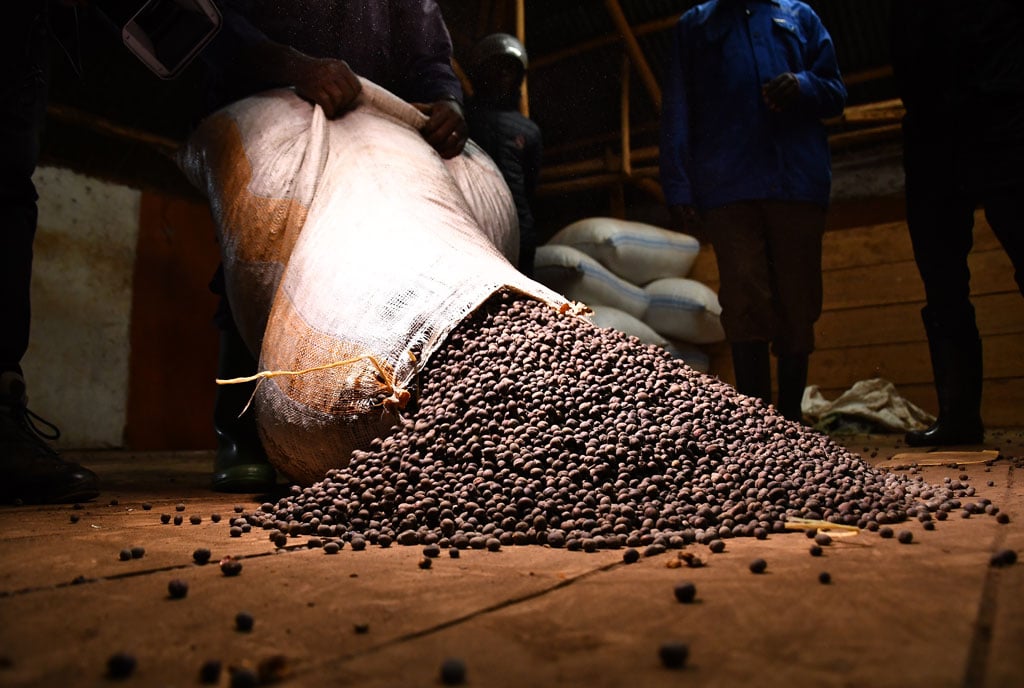Prime
DPP set to clear 700 sex abuse cases in 45 days

Director of Public Prosecutions Jane Frances Abodo. PHOTO | ALEX ESAGALA
What you need to know:
- Hearing of the cases across the country will start on Monday.
- The deputy DPP, Mr Charles Elem Ogwal, said sexual gender-based violence cases take up to 70 per cent of criminal cases registered and prosecuted in our courts.
Nearly 700 cases of sexual gender-based violence (SGBV) largely triggered by the Covid-19 lockdown, will be heard and cleared within 45 days, the Office of the Director of Public Prosecutions (DPP) has said.
Hearing of the cases across the country will start on Monday.
The deputy DPP, Mr Charles Elem Ogwal, said sexual gender-based violence cases take up to 70 per cent of criminal cases registered and prosecuted in our courts.
“These remain alarmingly high, despite the existence of institutional policy and legal frameworks of their prevention and punishment of perpetrators,” he said.
Mr Ogwal said Uganda is a signatory to the International Conference on the Great Lakes Region that resolved to commit to holding special sessions on SGBV cases.
The resolution seeks to fast track prosecution of SGBV cases to improve access to justice for the victims.
“The above resolution informed the special sessions on sexual gender- based violence cases that have been conducted since 2018. The one commencing this month with the 4th phase of these sessions,” he said.
Ms Samali Wakoli, the Gender, Children and Sexual Offences department head in the DPP’s office, said victims/ witnesses will this time use anatomic dolls to illustrate the sexual acts performed on them against their will.
She said courts require the witnesses to clearly state what happened to them, adding that if they are shy to mention the sexual organs by their names, their cases are dismissed for lack of evidence.
“We have had scenarios where a mother of a defiled girl fears to name the sexual act. [They go] around in circles saying, ‘he caught my daughter, he slept on my daughter.’ Such descriptions don’t depict exactly what happened and can’t sustain a conviction where we have to prove beyond reasonable doubt,” Ms Wakoli said.
Ms Lucy Ladira, the criminal justice adviser-governance and security/ access to justice programme at JLOS, said the ordinary court system is not designed to accommodate children who come into contact with the law.
Majority of the cases that go to court have witnesses, especially in defilement cases.
The international law has adopted child friendly procedures that see children who are either victims of crime or witnesses treated with dignity.
Ms Ladira also said nearly 6,000 accused people are currently on remand facing SGBV offences.
Early this month, the Gender, Labour, and Social Development ministry released a new report indicating that SGBV cases had tripled.
Statistics show that SGBV cases shot up from 2,386 in 2019 to 8,203 in 2020.
“Of the 18,872 people who were victims of domestic violence, 3,408 were male adults, 13,145 were female adults, and 1,113 were male juveniles while 1,186 were female juveniles,” the report reads in part.
Cost
It also indicated that healthcare providers spend about Shs18.3b annually to deal with the effects of SGBV, while the police spend Shs19.5b and local councils spend Shs12.7b.
The SGBV criminal sessions will be conducted in the high courts of Kampala, Kasese, Masaka, Mbarara, Tororo, Iganga, Moroto, Gulu, Adjumani and Otuke.
The sessions will also before the chief magistrates courts of Apac, Busia, Tororo and Nakapiripirit.
The cases to be prosecuted include aggravated defilement, rape, murder, aggravated trafficking in children, trafficking in persons, and simple defilement.




